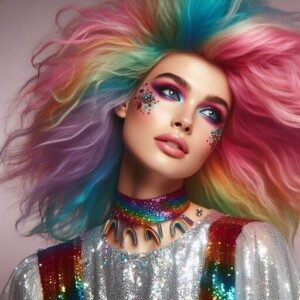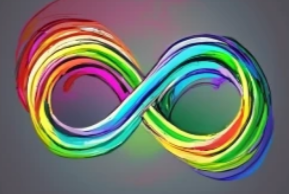Six autistic women express how they immediately felt upon getting their late Autism Spectrum Disorder diagnosis.
Autism Spectrum Disorder comes in many flavors, shapes, sizes and colors.
This is why, for many women, they were not diagnosed in childhood or even in their teens.
They were either misdiagnosed with (only) ADHD, anxiety, depression, OCD and/or another condition, or – as happens more often than you’d realize – were simply passed off as nerdy, introverted, lacking social skills, too opinionated, too serious, too analytical, artsy, quirky, odd, weird or eccentric.
With the understanding of autism becoming less and less of that stereotypical image of a young speechless boy spinning in circles all day and spending hours watching a toy train run in a loop, more and more adults – especially women – are being diagnosed with the neurotype.
Six Women Talk About How They Immediately Felt when Diagnosed with Autism
Dom Silvera
“I’d always thought I was just different but had been working with autistic people for a few years,” says Dom Silvera, a self-advocate and writer who was diagnosed with ASD at 44.
She continues, “And it had slowly dawned on me that I had things uncannily in common with many of them that I didn’t have in common with other people, even though we were all very different as well.”
She underwent an assessment and was given an ASD diagnosis.
“I immediately felt a deep sense of relief but also distress, both of which caused me to sob and cry,” says Dom.
“I was in shock, and my head was all over the place, my life flashing before my eyes, trying to work out how this could be possible when myself and everyone around me had never had any idea — if they had suspected it they had never said anything anyway.
“More than anything though, I was thrilled and excited at the prospect of now having official membership of the most interesting and worldwide cross-cultural community that I’d ever known, whose members were wildly differing and unusual, but yet magically similar in many ways.
“I finally had something important and definite in common with a load of people who were my kind of people!”
Jennifer Parr
“I was officially diagnosed at age 30,” says Jennifer Parr, a multimedia artist.
“My immediate feelings were those of relief. It was such a huge struggle to find someone willing to even go through the process of diagnosing me due to me being high masking [concealing autistic traits] and an adult.
“A diagnosis helped to validate what I already knew to be true about myself.
“It also helped to start to dissect my past and view it through a neurodivergent lens instead of a broken neurotypical lens.
“I have a long way to go yet in understanding myself and learning to unmask, but it honestly made a huge impact in my life and has empowered me to make decisions that are best for me.”
Angel Durr
“It felt extremely reassuring to get my diagnosis, because the first person I saw was very ableist towards me,” begins Angel Durr, a consultant and entrepreneur, and expert in automated technology solution design.
She explains, “And even though I tested as autistic, he said he wouldn’t confirm my diagnosis because I was married and had a child, and we couldn’t possibly do that.
“I cried when I finally found a new specialist a year later, because the entire experience made me distrust the medical community.
“Getting diagnosed gave me the closure I was looking for. It helped me close a chapter of my life that had taken 33 years to close.”
Jess Owen
“Upon receiving my diagnosis, I felt relief and elation in equal measures,” says Jess Owen, co-creator of thewyrdsisters.co.uk with her sisters and diagnosed with ASD at 25.
“It felt like every film I’d ever seen where a person on trial for their life gets acquitted.
“I laughed and said ‘good.’ While I have mixed feelings about the autistic experience from time to time, I have never once regretted or felt anything negative regarding my diagnosis; not on that day, and not since.”
Ashley Gartner
Ashley Gartner is a master esthetician and skincare blogger who was diagnosed with ASD at 24.
However, prior to the official diagnosis, she had self-diagnosed herself after realizing how much the Instagram content of an autistic woman kept resonating with her.
“But after looking back at my life through an autistic lens, it all made sense,” says Ashley.
“I felt relieved that everything I had gone through was not because something was wrong with me.
“It was just me trying to act neurotypical, not knowing I was neurodivergent and desperately needed support.”
Artistry and Autistry
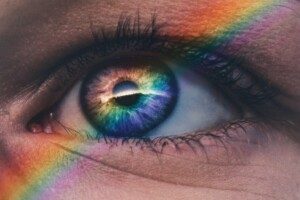
harry-quan/unsplash
When “Asperger’s syndrome” began gaining momentum in the public consciousness, I just happened to come upon an article about this.
They call themselves Aspies, I recall the article stating. There’d been something about that line that made me experience – at that moment – this odd feeling of being left out of a club.
I almost envied these Aspies – for lack of a better descriptor.
At some point afterwards – and I don’t know how long, though – I took a few Asperger’s tests online and scored high enough to make me consider the possibility that I had this condition.
But then I shrugged it off and figured that I had scored into the suspicion range because I was just different than most people.
It would be years later when I finally received my ASD diagnosis.
I was hoping for it so badly and was agonizing over the possibility that I’d be denied the diagnosis because (even though these aren’t diagnostic criteria) my special interests had never disrupted my day-to-day life, and I never had meltdowns, shutdowns or “autistic burnout.”
If I were actually neurotypical…then what the devil was wrong with me?
At least if I were autistic, I’d then officially be a member of a club of very uniquely thinking individuals.
These were the people who were probably responsible for many of the game-changing inventions throughout unrecorded and recorded history.
I didn’t want to be told I had a processing error, so to speak. I wanted to be told I had an alternate operating system.
When I read the ASD diagnosis on the PDF report, prior to my teleconference with the psychologist, I was ecstatic, elated, thrilled – a tsunami of relief engulfing me. I was so happy!
My only regret was not getting the assessment years sooner. I proudly embrace my Autistry.
I will be posting more profiles of autistic women explaining how they felt upon getting their autism diagnosis, so bookmark this page!
Maverick Dom Silvera is an autistic single parent who expresses her autism self-advocacy through writing.
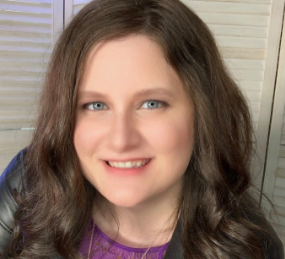 Jennifer Parr has always had a devoted obsession to art and creativity. Her ultimate goal is to help others discover their own creative side and find enjoyment through art and crafting.
Jennifer Parr has always had a devoted obsession to art and creativity. Her ultimate goal is to help others discover their own creative side and find enjoyment through art and crafting.
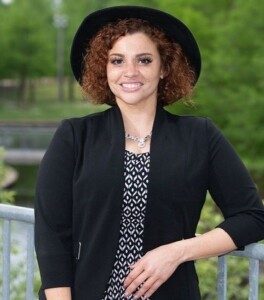 Dr. Angel Durr obtained her PhD in information systems from the University of North Texas in 2018. She is an autism speaker focused on DEI, data, and entrepreneurship and is on speakerhub.com. Angel has a nonprofit called DataReady DFW that focuses on data literacy initiatives, and consults in strategic analytics.
Dr. Angel Durr obtained her PhD in information systems from the University of North Texas in 2018. She is an autism speaker focused on DEI, data, and entrepreneurship and is on speakerhub.com. Angel has a nonprofit called DataReady DFW that focuses on data literacy initiatives, and consults in strategic analytics.
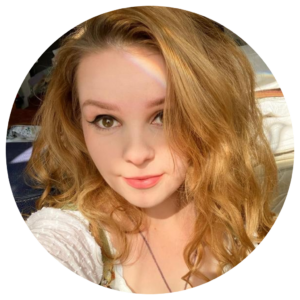 Jess Owen, along with her sisters Emily and Abi, run thewyrdsisters.co.uk, about autistic sisters navigating a neurotypical world. Their goal is to spread information and awareness, and open up a conversation about neurodiversity that will make life easier for everyone.
Jess Owen, along with her sisters Emily and Abi, run thewyrdsisters.co.uk, about autistic sisters navigating a neurotypical world. Their goal is to spread information and awareness, and open up a conversation about neurodiversity that will make life easier for everyone.
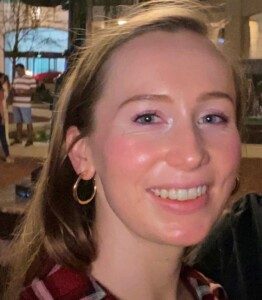 Ashley Gartner runs Ash Esthetics, a holistic skincare site where she shares her expertise in skincare, a passion she’s had since age 12. “I was determined to learn everything there is to know about skin,” says Ashley, who’s licensed as a master esthetician. “My main goal is to just help people because I know how hard it is to have healthy skin.”
Ashley Gartner runs Ash Esthetics, a holistic skincare site where she shares her expertise in skincare, a passion she’s had since age 12. “I was determined to learn everything there is to know about skin,” says Ashley, who’s licensed as a master esthetician. “My main goal is to just help people because I know how hard it is to have healthy skin.”
 Lorra Garrick has been covering medical and fitness topics for many years, having written thousands of articles for print magazines and websites, including as a ghostwriter. She’s also a former ACE-certified personal trainer. In 2022 she received a diagnosis of Level 1 Autism Spectrum Disorder.
Lorra Garrick has been covering medical and fitness topics for many years, having written thousands of articles for print magazines and websites, including as a ghostwriter. She’s also a former ACE-certified personal trainer. In 2022 she received a diagnosis of Level 1 Autism Spectrum Disorder.
.

